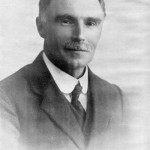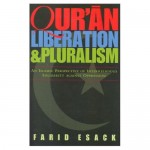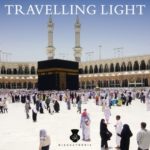-
Becoming Muslim: Gregg
By Editor
Categories : Conversion Stories
In The Name of Allah Most Gracious, Most Merciful.
I became muslim in 1990 at the age of 27. I was born to a Lutheran Christian family in the American Mid-West, which was not terribly religious. However, I was sent to religion classes on Sunday mornings when I was old enough to enter grade school. I recall being very enthusiastic upon receiving my own Bible, and looking forward to gaining knowledge through religion. However, I was not satisfied with either the words of my King James Bible or the instruction given the teachers at my “sunday school.” The idea of Jesus Christ as God, Son of God, or part of the Holy Trinity seemed a ridiculous idea to me, especially on those occasions when I was allowed to be seated with the adults during Church services. The singing of songs and the statue of a dying god hanging on the wall; it all seemed a pathetic farce to me.
Furthermore, I found that questions and doubts about the religion were readily dismissed without any reason: one was simply expected to believe what one was told and not to question or ask for reasons for the “facts” one was told. I also encountered parents trying to tell their children about Christianity and telling us to “let Jesus into our hearts.” To me, the content of this metaphor amounted to a request to succumb to simple brainwashing. Sunday classes amounted to the reciting of stories about the life of Jesus, some of which, like the story of Jesus’ encounter with the money changers in front of the synagogue, I liked very much, but most of which I found irrelevant. After a year of two of this unsatisfying indoctrination, I refused to go to Church any longer. I became progressively more agnostic. I had a friend who was the son of a Methodist Christian minister, and though I had small conversations with the boy’s father when invited to dine with the family, nothing in my feelings about Christianity changed.
As I became increasingly educated in science, I decided that I wished to become a scientist. The more I learned about science and the history of encounters between the Church and pursuers of truth such as Galileo, the more antagonistic became my relationship with Christianity. The theological conflict Christianity has engendered between reason and Christian faith drove me further and further away from Christianity throughout my period as a high school student and closer to materialist agnosticism.
In college, I began to meet Muslims and became interested in the culture of the Middle East. I became very interested in Islamic art, which piqued my interest in Islam itself. However, being a triple major in difficult academic subjects, I felt I had little extra time to study religion. Upon entering graduate school I bought a translation of the Qur’an and began reading it on the bus to and from my office. I found it very interesting, but was distracted by its detailed rules regarding legal and other practical matters, and furthermore had no one to ask about things made unclear in translation. Then I began dating a Catholic Christian girl about whom I became very serious. However, I refused to accept the Christian view of Christ no matter how many ways I considered it and despite the strength of faith, honesty, and morality my friend exhibited. Eventually, we parted ways, but the girl’s conservatism and strength of morality left a strong impression on me. I reconsidered the virtues of faith in God, untainted by the idea of associating of others with Him.
Soon thereafter I had a chance to meet new Muslim friends and to read the Qur’an again, now with these friends available to answer my questions about it. This time it really sunk in, and I couldn’t read enough; until now, I make time to read the Qur’an every day. The Qur’an in some way addressed every single one of the doubts I’d ever had about religion. Before this time, my opinion about religion had become that it was a essentially a construction formed from old myths for the purposes of advocating a particular view of morality, that it was used to benefit those in power in society. I believed that most religious people, however well intentioned, actually used religion as an excuse for their own failures and weaknesses and as a way of avoiding difficult questions about their own mortality and place in the physical universe. In short, I saw religion as a means of rationalizing that which human beings find difficult to face. I believed that this is what drew people to religion — faith was the quid pro quo for escaping moral accountability and personal insignificance. The Qur’an faced my supposition that religion is just mythologizing and storytelling and denied it directly; it made me face anew my reasons for abandoning religion. The Arabic Qur’an as an unaltered record of God’s words removes the possibility of Islamic religion being simply stories passed down from generation to generation or century to century progressively altered in content and language, and the strict personal moral accountability it required left no room for rationalizing immoral conduct: Islam was no escape mechanism for the irrational or the morally weak.
The Qur’an asked me to contemplate God’s creation and ask myself honestly “Is not this a great achievement?” I began to take seriously the idea that the universe might in fact be created. If this amazing universe were created, would not God be Great, as muslims say? In a religion which makes no room for hypocrisy and makes each human being fully accountable down to the smallest unit of good deeds and the smallest unit of bad deeds, true justice is possible. Indeed only in such a moral scheme is true justice possible. At the same time, Islam explicitly rejected all the clear errors of religion against which I had good arguments, such as deifying a man and/or associating others with the God. And it went further: it provided its own arguments against the errors of other religions and against uncalled-for doubt. I had been shown the straight path of God and had no excuse: I was obligated as an honest and rational human being to become a Muslim.
Allahu Akbar! `Al-Hamdu lillaahi Rabbil-`Aalamin! [God is Supreme! Praise be to the Lord of all the Worlds!]





